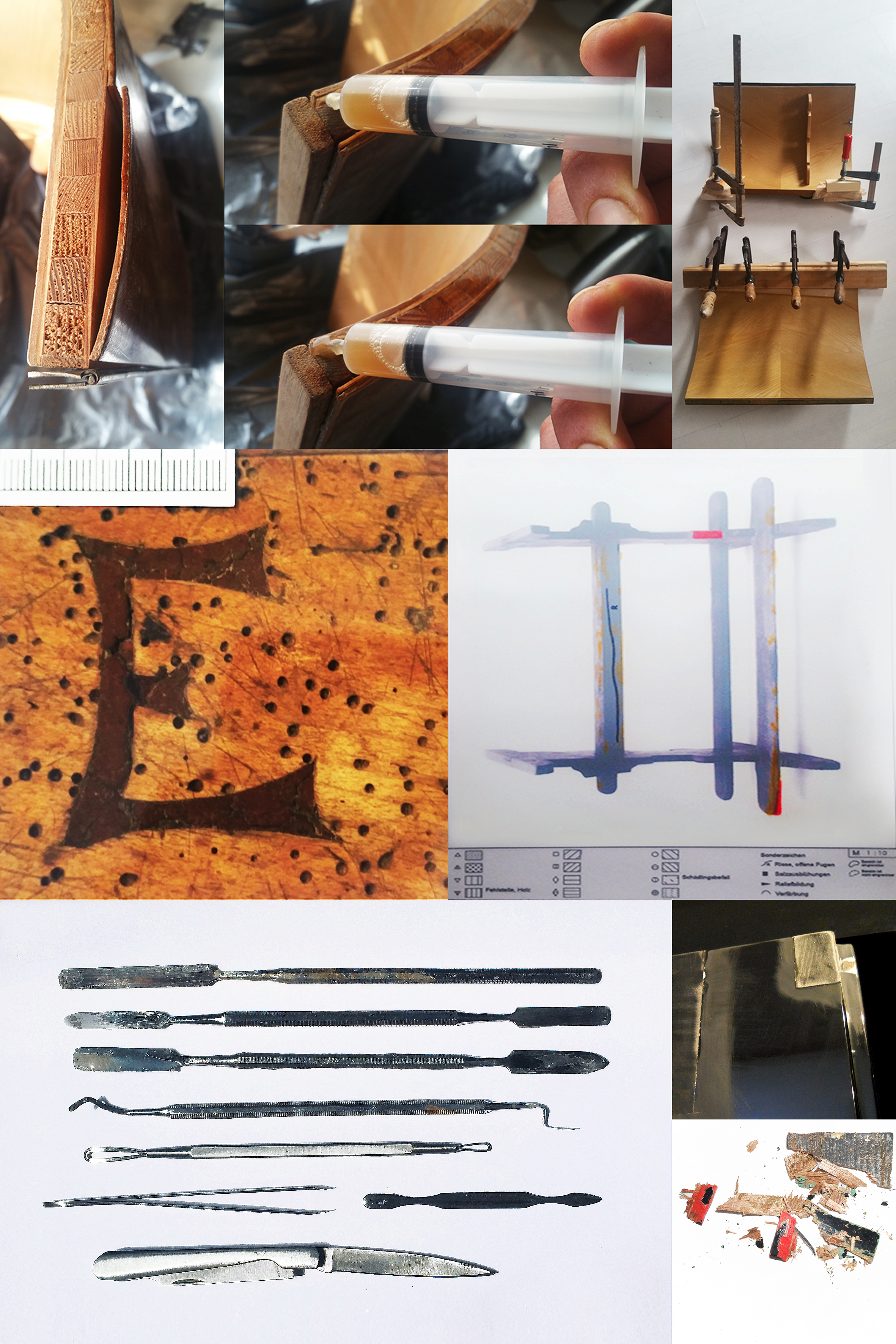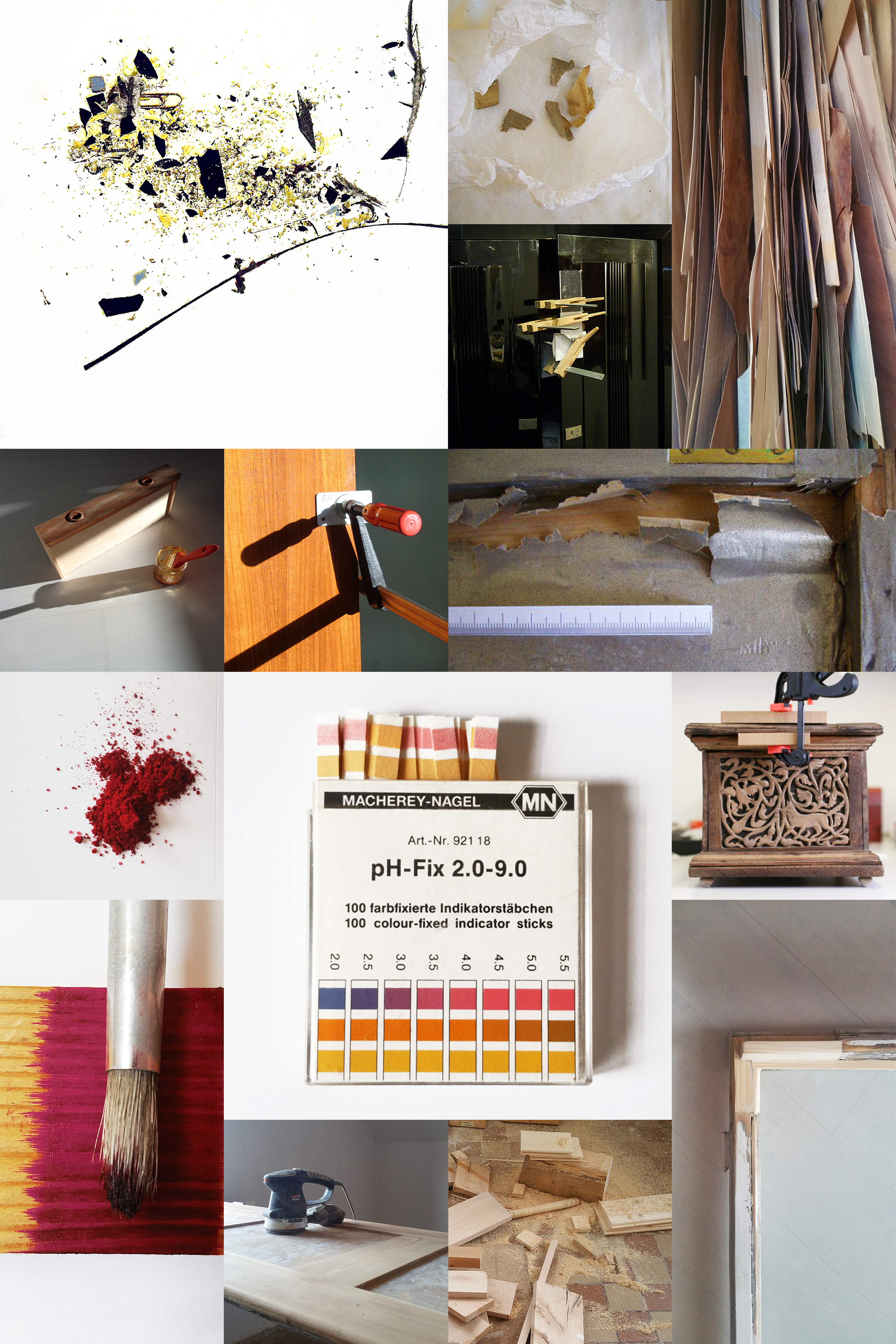

Conservation work assumes to respect time with a keen eye for details by focusing the methodological moment in which object or art work are appreciated in its material, its form and historical and aesthetic duality, with a view to transmitting cultural diversity and traditional techniques from past into future. Ethical guidelines are to preserve appearance, maintain original design, material properties, to keep the ability to reverse changes and to leave substitutes visible at any time- basically according to academic conservation standards and science.
Upcycling is a related trending global movement, which adapts different aspects of material preserving from academic conservation and contemporary necessaries. To use reusable, existing resources to create, is one of the most efficient, sustainable methods to avoid wasting resources.






Recording and documentation of art and cultural assets I Expertise and object evaluation I Photographic documentation I Air-conditioning technology – conception I Damage prophylaxis I Preventive Conservation I Integrated pest management | Paleography I Physics I Chemistry I Archeometry I Microbiology I Historic techniques I Examination and analysis I Legal and media matters I Archive I Inventory and Depot management I![]()